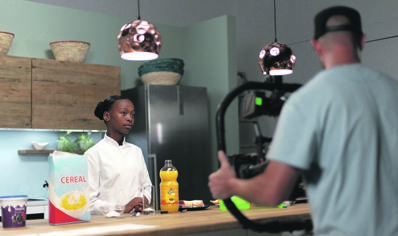
As you flick through TV channels today, you will probably come across a commercial calling you out.
“Hello, today we’ll be making breakfast and preparing a lunch box for school,” the young lady will say smiling, as she reaches out for the ingredients.
“Let’s start with some … sugar and salt,” she will continue, holding a box of cereal, “and wash it down with a nice … big glass of … more sugar.”
The point of the advert – which forms part of the Healthy Living Alliance’s (Heala’s) new #Whatsinmyfoodcampaign – is actually not so much to call you out on eating unhealthy food as it is about making you aware of how much you know about say, your favourite cereal.
Obesity and overweight are fast-growing issues with life-threatening health consequences.
The World Health Organisation estimates that just three years ago, 1.9 billion people were classified as overweight and that more than 650 million among them were obese.
In South Africa, obesity is one of the top five risk factors for early death and disability, with almost 40% of women and 11% of men classified as obese and 69% of women and 39% of men classified as being overweight, according to a 2016 Lancet review of trends in body mass index.
So what’s food got to do with it? Everything, argues the new campaign, which will flight from today and run for six weeks on TV, on radio and in print.
Its aim is to encourage locals to question what is in the processed foods they eat and understand how high levels of sugar, salt and saturated fat negatively affect their health.
The campaign’s developers argue that, according to published research, there is a direct link between the excessive consumption of foods high in salt, sugar and saturated fat, and obesity and related non-communicable diseases such as diabetes, strokes, heart disease and some cancers.
“Heala started out in 2016 very much around advocating for the sugary drinks tax. But when looking at the food environment holistically, we saw a lot of unhealthy food, junk food in particular, also coming into rural areas and townships,” said Sibongile Nkosi, executive director at Heala.
“One of the narratives around food is that it’s about individual choice, but no one actually looks into what the food industry puts out there. Even in supermarkets, some of us don’t know what is in yogurt, for example, and there is difficulty around reading the list of ingredients on product labels.
“So we started this campaign to understand what healthy food is and what is not and to let people know that we actually have a right to know what’s in our food.”
Linked to the campaign is a microsite (whatsinmyfood.org.za) that will feature simplified nutrition information on popular packaged foods and beverages.
There is also a pledge for interested visitors to sign, which urges government to put in place policies that call for clear food labels and hold industry accountable for the harmful ingredients in the food they supply.
Nkosi argued that the availability of unhealthy food, combined with aggressive marketing and advertising and incomprehensible food labels, disempowered the consumer from making healthy food choices.
Professor Sue Goldstein, a public health specialist, said about the campaign: “What is important is that we understand what is good to eat and what isn’t. Looking at the ad, most people think cereal is good to eat, but what it really is is salt and sugar.
“The sandwiches children take to school, you don’t classify those as junk food and yet look at their composition – it’s sugar and salt and fat. It’s not complicated. We need to help people understand what’s in their food. I know the industry will say, ‘You want to control people’ or ‘Nanny state’, which is their standard answer,” she said.
“But more than half of South African women are obese, and being obese means you’re at high risk for a number of illnesses. So it’s a really serious issue and in order for people to make their own choices, they must know what they’re choosing.”




 Publications
Publications
 Partners
Partners








